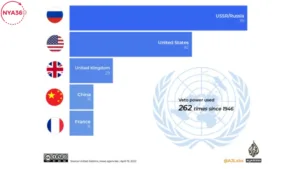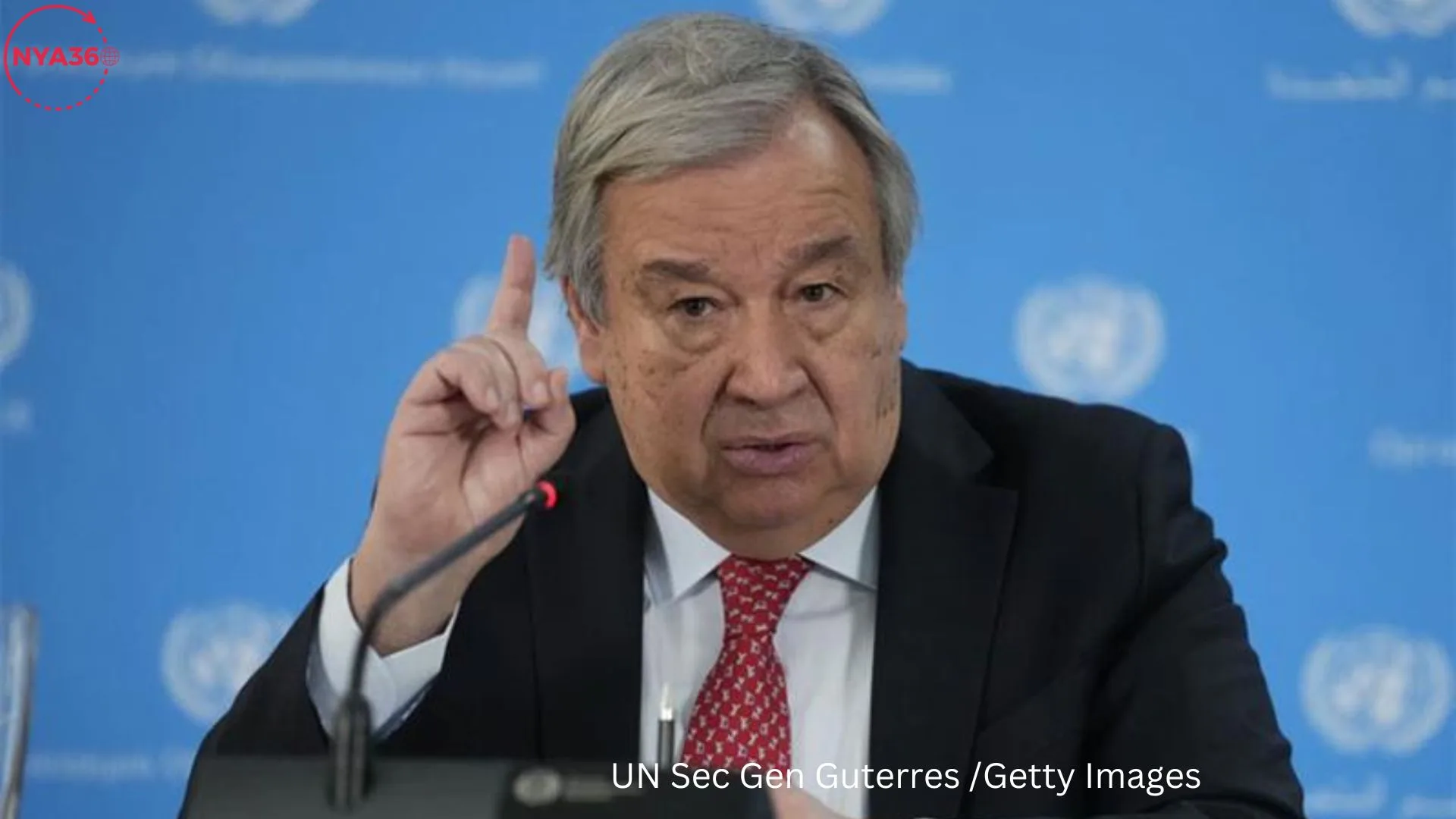The UN Secretary-General has utilized Article 99 of the UN Charter to address a situation that has been particularly characterized as a “Gaza Genocide” carried out by Israel.
According to Article 99 of the United Nations Charter, the Secretary-General is granted the authority to notify the Security Council of any issue that has the potential to jeopardize global peace and security. Nevertheless, the primary purpose of this article typically entails notifying the Security Council of circumstances that have the potential to escalate into conflicts or crises, rather than expressly aiming to achieve a ceasefire or handle a specific dispute.
The ongoing situation in Gaza, characterized by hostilities between Israel and Palestinian factions, most notably Hamas, has garnered significant worldwide attention and prompted widespread appeals for a cessation of hostilities. This is mostly owing to the adverse effects on civilian populations and the resulting humanitarian crisis. The endeavors undertaken by the Secretary-General of the United Nations and various international entities have frequently centered on the advancement of conversation, negotiation, and the encouragement of both parties to reduce tensions and avert harm to non-combatants.
It is crucial to acknowledge that the circumstances in the Middle East, particularly in relation to the Israeli-Palestinian conflict, are characterized by intricacy, sensitivity, and a multitude of dimensions, frequently eliciting intense sentiments and divergent viewpoints. International organizations such as the United Nations consistently strive to achieve peaceful resolutions and safeguard the well-being of civilians in areas affected by conflict. However, the implementation of specific measures and the articulation of official positions are contingent upon evolving circumstances and diplomatic endeavors undertaken by the global community.
Veto Power by Permanent Members.
Is it likely that the United Kingdom will exercise its veto power to enable Israel to persist in its alleged acts of genocide against the Palestinian population? The utilization of a veto power by a permanent member of the United Nations Security Council (UNSC), such as the United Kingdom, is a momentous diplomatic determination that holds the potential to exert influence over deliberations and resolutions pertaining to conflicts, such as the Israeli-Palestinian predicament.
The utilization of a veto within the United Nations Security Council (UNSC) has the capacity to impede the passage of resolutions or the implementation of actions put forth by fellow member states. Historically, several resolutions pertaining to the Israeli-Palestinian conflict have encountered veto actions from permanent members of the United Nations Security Council (UNSC), resulting in their inability to be adopted.
The Israeli-Palestinian conflict is mark.

ed by significant concerns regarding civilian deaths and the imperative to safeguard the well-being of children and non-combatants in areas affected by hostilities. The significance of safeguarding civilians, particularly children, and fostering peace in the region has been frequently underscored by the United Nations and numerous international organizations.
The decision-making process inside the United Nations Security Council (UNSC) entails intricate diplomatic talks, careful deliberation of international legal principles, and the delicate equilibrium of geopolitical interests among its member states. The task of anticipating particular acts, such as the exercise of a veto, inside forthcoming United Nations Security Council (UNSC) deliberations concerning the Israeli-Palestinian conflict is a complex endeavor, primarily due to the delicate nature of the matter at hand and the ever-evolving dynamics of global diplomacy.
It is noteworthy to acknowledge that international endeavors, including diplomatic dialogues, official declarations, and formal agreements, are directed at tackling the intricate aspects of the conflict, minimizing acts of aggression, and striving for a harmonious settlement that guarantees the well-being and protection of all non-combatants residing in the area.
Follow us on social media: Instagram, Threads & Twitter @nya360_ YouTube & Facebook @nya360.





